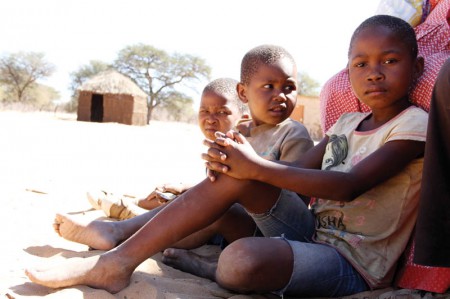Language: A bridge or a sword?
Nnasaretha Kgamanyane | Friday February 27, 2015 14:31


Seems incomprehensible, but the differences over language have stoked tribal and civil wars across the continent over the years and as much as Botswana is peaceful, that harmony needs to be safeguarded.
Assistant Minister of Local Government and Rural Development, Frans Van Der Westhuizen believes language and the conflicts over which one should dominate, can be the apple of national discord.
At the International Mother Language Day celebrations in Middlepits recently, he explained that the issue was not as trivial as many believe.
“Our country has developed from being among the poorest in the world to a middle-income country in a peaceful and accommodating environment. I wish to caution Batswana to avoid stoking the fires of tribalism and divisive tendencies in the name of equality.
“Lessons from other nations have taught us that culture and language can be used to divide people and cause tribal and ethic tensions.
“We have progressed beyond that as a country thanks to the foresight of our forefathers and the tolerance of our people,” said Van Der Westhuizen.
According to the assistant minister, the advent of globalisation and technological advancement has made it critical for Batswana to learn other languages. The whole world is a global village, where we are frequently reminded that simply knowing one’s mother tongue may not be enough to qualify as a citizen of the world.
Recently, French and Mandarin were introduced at university level and Van Der Westhuizen challenged to Batswana to learn.
“This is intended to improve our competitiveness as a nation and I challenge all Batswana to learn and be able to communicate in at least two languages,” he said.
Many, however, are looking inward and not outward when it comes to languages. Many citizens of the country are unhappy about the dominance of Setswana at the expense of their own languages.
Experts believe languages such as iKalanga, Herero, Mbukushu, Seyei, Sesobeya, various Sesarwa dialects, Ndebele, Zezuru, Xhosa, Nambza and many others are marginalised in Botswana.
Before reaching out for French and Mandarin, many would want these languages recognised, taught and promoted first for the country’s sustained harmony and unity.
